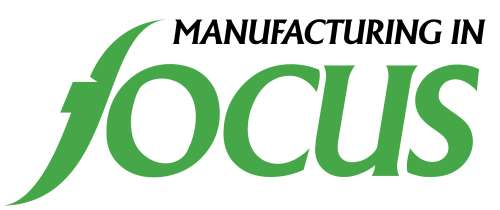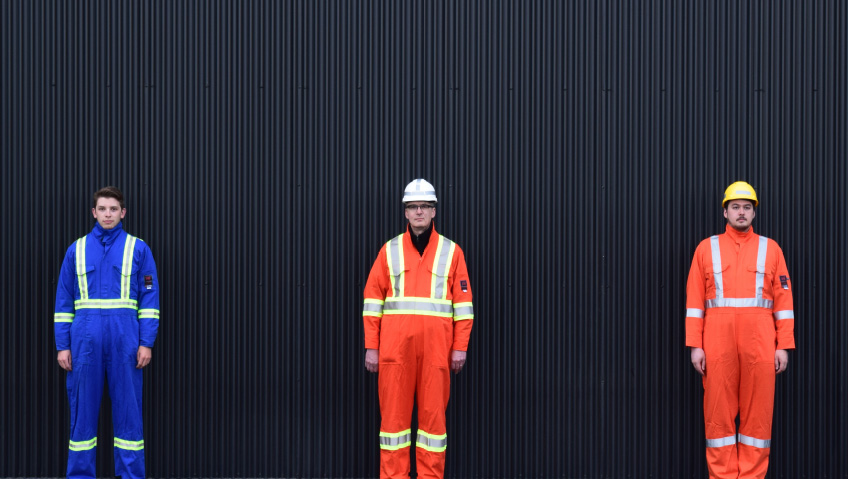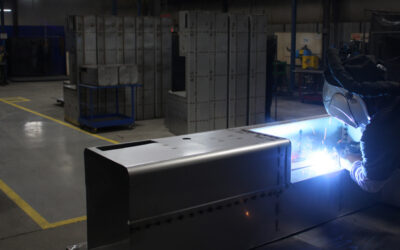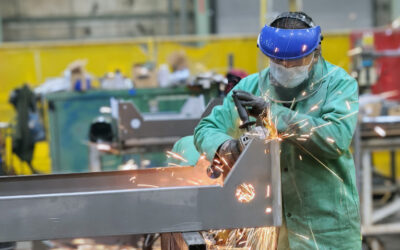These days, safety is everything. Edmonton, Alberta-based Davey Textile Solutions Inc. (DTS) has always believed that but during these strange times, it is more important than ever.
Look no further than your nearest first responder to figure out what the company does. If your headlights reflect off of the uniform striping on a paramedic or firefighter by the side of the road, thank DTS for keeping them safe. It has been in the textile business since 1986 but starting in 2001, the company began distributing and converting 3M Scotchlite Reflective Materials.
The company operates a U.S. branch in Texas, which opened in 2012. The following year, its facility in Edmonton was expanded, and in 2014, it entered into a sales agreement to serve areas in Mexico. Two years later, it began its dealings in South America.
Vice President of Production Dan King, who has been a part of the company since 1992, said that a part of his company’s products are manufactured in a similar manner to a vehicle’s seatbelt, except made from a different material. DTS buys products from 3M in Texas and converts them to meet market needs. It then creates reflective products for first responders, the forestry sector, oil and gas operations, mining applications, construction sites, and roadside safety – any industry where workers need to be visible to avoid struck-by hazards.
“It would be going a lot better if it weren’t for this thing called COVID-19,” sighed King, when asked how things are going for DTS. The oil and gas industry is the company’s biggest source of income, and even though it still is, the downturn of the industry is having an effect.
Even before the pandemic, DTS, like a lot of Alberta-based companies, was feeling the effects of less activity in the oil and gas industry as early as November of last year because of the demise of the gas markets and the lack of pipelines.
“We were feeling some impact, but we adjusted for business, and everything was good, no problems,” King explained. “Then March hit, and we saw an immediate downturn of seventy percent from the previous year. Thankfully, my business partner, Jim Davey, took on cost control measures very aggressively, keeping these threats at bay.”
As of October, DTS is back up to about sixty percent of previous capacity, thanks in part to the federal Canada Emergency Wage Subsidy program, which helps businesses with emergency grants. That program is being phased out, and King hopes the company will be able to regain most, if not all of its market share, by the time that happens.
“Oil and gas markets were getting soft, and the programs that the Canadian Government introduced helped us deal with that because we wouldn’t have had any support from the softening oil and gas markets,” he said. “I’ll give the federal government credit. We haven’t been able to access a whole lot of support on our US operations. We laid two people off, and it is what it is. We only have three people offering down there. It’s all we can do.”
But on the Canadian side, the company has not had layoffs. Everyone is still working and earning a paycheque, but King said it bothers him that there is not much consumer confidence. The company mainly deals with business-to-business sales, as opposed to business-to-consumer. Because of that, DTS should start doing better as a downturned economy would affect business-to-consumer sales hardest.
After the pandemic, plans will be made again, and King says he and the rest of the management team will be in a good position to plan their next move. Constantly improving its already stellar customer service is one of the main goals for the future.
“We have an amazing team here. They’re highly focused on quality and service,” he said. “Grant Davey is the president of the company, and he leads the sales side, and he leads like any good general. He’ll go into battle first to show that it’s all about service. I think if you talk to any of our customers, they’ll all tell you that we’ve become very focused on customer service.”
Applying aspects of Industry 4.0 is another way to face the future head-on. Industry 4.0 uses smart technology to create real advances in efficiency. At a textile conference in Europe last year, King learned about how smart technology can play a crucial role in manufacturing. Now there are little computer units on all of DTS’s textile lines making life easier for everyone working there.
“Those tiny computers are there for data collection. We also use a Raspberry Pi system. We can look and see that, for example, loom six is down. Maybe there’s a weaving flaw. The operator will fix it, and it will come up as green on my display,” he explained. “It’s a completely current live data stream giving us live data, and it works very well.”
This, he said, also helps with another aspect of future business expansion: competition from overseas.
“We’re competing with China right now, and the only way to compete is by being better,” he said. “They have cheap labour, so we have to find ways to make our processes more efficient because they’ll throw fifty people at a process, whereas I want one person on the process who is fifty times more efficient than those fifty people.”
Of course, a big part of remaining competitive for any organization is having a trained workforce. How does DTS manage to keep its employees performing at their peak? Look no further than a Japanese training method.
Variants of the production method that was created by Toyota in the 1930s are now used worldwide. Lean manufacturing is a means of controlling value and efficiency and creating continuous improvement.
Much like Japanese martial arts, this system rewards participants with a different coloured belt for each level they pass. The white belt level is earned by everyone in the company. Those who wish to go further can take it to the next level, with yellow belt training. King currently holds a yellow belt.
Employees aiming for leadership will take the next level: the green belt. Project managers have to become black belts. King praised the program.
“I used to be with Imperial Oil where we used to talk about continuous improvements, but I don’t believe there was any standard you would apply. We would just look for areas in which to improve,” he said. “With lean manufacturing, you’ll get Venn diagrams, spaghetti diagrams, fishbone diagrams, whatever, and you’ll use those tools to analyze whatever is going on and create solutions. It works extremely well for us.”
The training program will take DTS into the future, which for the textiles industry, will most assuredly mean sustainability. He pointed out that preventing waste products from entering landfills will be a priority, as it should be for all companies. As an example, he said that, in Alberta, there is an estimated five thousand tons of coveralls from the oil and gas industry going into landfills every year.
“So, we’re looking at initiatives to create greater sustainability in textiles, whether it’s in industrial workwear or others,” he said. “We’re also looking at options for power generation and consumption, like the thermal desorption of industrial solid waste.”
Waste could be broken down to make it into a volatile gas which could run small-scale generators for DTS’s electrical needs as a way to get it off the power grid most of the time.
DTS could also create a substitute for synthetics used in clothing. Every time you wash synthetic clothing, it gives off tiny beads and microfibers of plastic that end up in the water supply or the ocean. One potential solution is hemp.
“Now that it’s legalized, we can actually grow hemp and make it into materials, but the problem is that hemp clothing isn’t very comfortable to wear,” he said. “We’re looking at a reconstituted cellulose to rebuild that hemp fibre into a more comfortable fibre.”













